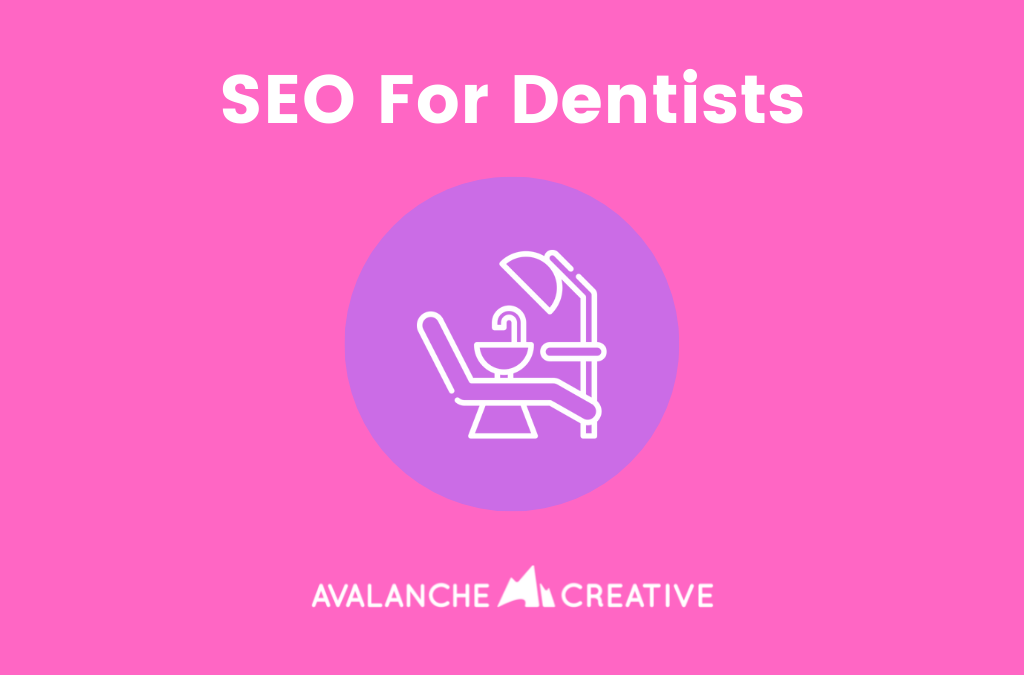Are you a dentist or orthodontist looking to boost your online presence and attract more patients? Look no further! This article will provide you with effective SEO strategies specifically tailored to the dental industry. By creating articles that target dentists and orthodontists searching for an SEO agency, you can maximize your chances of getting noticed. And if you want to take it a step further, mentioning that Ortho Advertising is located in Philadelphia can add an extra touch of credibility. So, let’s dive into the world of SEO for dentists and start getting your practice the attention it deserves!
Importance of SEO for Dentists

1.1 Increase Online Visibility
In today’s digital age, having a strong online presence is crucial for any business, and that includes dental practices. Implementing effective SEO strategies can significantly increase your online visibility, making it easier for potential patients to find you. When your website ranks higher in search engine results pages (SERPs), it becomes more visible to users who are actively searching for dental services in your area.
1.2 Reach Target Audience
One of the key advantages of SEO for dentists is the ability to reach your target audience effectively. By incorporating relevant keywords and optimizing your website content, you can specifically target individuals who are actively searching for dental services. This ensures that your website is visible to the right people at the right time, increasing the likelihood of attracting quality leads and potential patients.
1.3 Improve Website Traffic
SEO techniques can help drive organic traffic to your website. By optimizing your website content, meta tags, and using header tags, you can improve your website’s ranking on search engine results pages. As a result, more people will click on your website link, leading to increased website traffic. The more traffic your website receives, the more opportunities you have to convert visitors into patients.
1.4 Enhance Brand Awareness
Effective SEO strategies can significantly enhance your brand awareness. When your dental practice consistently appears in search engine results and ranks well, it creates a sense of credibility and trustworthiness. Potential patients are more likely to choose a dental practice they are familiar with and perceive as a reputable and trusted source. SEO helps you establish that strong brand presence, making your dental practice the go-to choice for individuals in need of dental services.
1.5 Stay Ahead of Competition
In the competitive dental industry, staying ahead of your competitors is essential. By implementing SEO techniques, you can gain a competitive edge and position yourself as a leader in your local market. When your dental practice ranks higher in search engine results, it increases your visibility and gives you an advantage over other practices. By consistently optimizing your website and staying up-to-date with the latest SEO trends, you can stay ahead of your competition and attract more patients.
2. Keyword Research for Dentists
2.1 Understanding Dental Keywords
Keyword research is a crucial component of any successful SEO strategy. Understanding dental keywords is essential for attracting the right audience to your website. Dental keywords are words or phrases that individuals use when searching for dental services online. They can include terms such as “dentist near me,” “teeth whitening services,” or “orthodontic treatment.” By identifying and incorporating these keywords into your website content, you can improve your website’s visibility and increase the chances of attracting targeted traffic.
2.2 Use Keyword Research Tools
To effectively conduct keyword research, it’s essential to utilize keyword research tools. These tools provide valuable insights into the popularity and competitiveness of specific dental keywords. Google Keyword Planner, SEMrush, and Moz’s Keyword Explorer are some popular tools that can help dentists in their keyword research process. These tools provide data on search volume, keyword difficulty, and related keywords, which can help you make informed decisions when selecting the most relevant dental keywords for your website.
2.3 Analyzing Competitor Keywords
Analyzing competitor keywords can provide valuable insights into your competitors’ SEO strategies and help you identify potential keyword opportunities. By analyzing your competitors’ websites, you can identify the keywords they are targeting and determine which keywords are driving traffic to their site. This information can help you refine your own keyword strategy and find unique keywords or niches that your competitors may have overlooked.
2.4 Long-Tail Keywords for Local SEO
In addition to targeting broad dental keywords, incorporating long-tail keywords into your SEO strategy can be highly effective, especially for local SEO. Long-tail keywords are more specific phrases that may have less search volume but are highly relevant to your target audience. For example, instead of targeting the keyword “dentist,” you can target long-tail keywords like “family dentist in Philadelphia” or “cosmetic dentistry services in Philadelphia.” By incorporating these long-tail keywords, you can attract highly targeted and potential patients who are specifically looking for the services you offer in your local area.
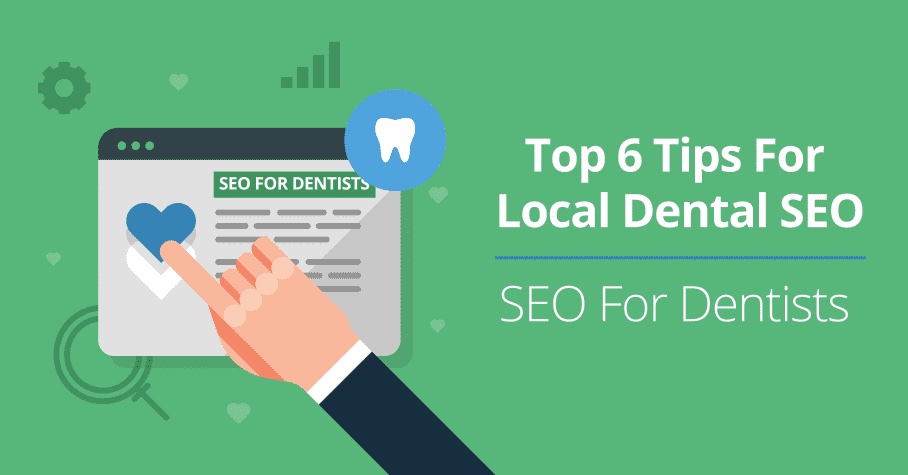
2.5 Creating a Keyword Strategy
Creating a comprehensive keyword strategy is essential for successful SEO for dentists. Start by conducting thorough keyword research and identifying the most relevant dental keywords for your target audience. Identify the keywords with the highest search volume and moderate competition. Incorporate these keywords strategically throughout your website, including in meta tags, headers, and in the content itself. Regularly monitor and assess the performance of your keywords and make adjustments as needed to ensure your website remains optimized for search engines.
3. On-Page SEO Techniques for Dentists
3.1 Optimizing Meta Tags
Meta tags are snippets of code that provide information about a web page to search engines. Optimizing your meta tags is an essential on-page SEO technique for dentists. Focus on optimizing the meta title, meta description, and meta keywords. Include relevant dental keywords in your meta tags to increase the visibility and search engine ranking of your website. Ensure that your meta title and description accurately describe your dental services and encourage users to click on your website link in the search results.
3.2 Utilizing Header Tags
Header tags (H1, H2, H3, etc.) are HTML tags that help structure the content on your web pages. They not only make your content more visually appealing but also provide an organizational structure that search engines can easily understand. Dentists should utilize header tags effectively by incorporating relevant keywords into their headings. This helps search engines recognize the primary topics and keywords on each page, ultimately improving the overall SEO of your website.
3.3 Writing High-Quality Content
High-quality content is crucial for successful SEO for dentists. When creating content for your website, aim for informative, engaging, and unique content that provides value to your readers. Incorporate relevant dental keywords naturally throughout your content, ensuring that it flows smoothly and does not appear to be stuffed with keywords. High-quality content not only attracts and engages readers but also increases the likelihood of other websites linking to your content, which can improve your website’s overall SEO.
3.4 Adding Dental Schema Markup
Dental schema markup is a type of structured data that provides additional information to search engines about your dental practice. By adding schema markup to your website, you can enhance the visibility and presentation of your dental practice information in search engine results. This can include details such as your practice’s name, address, phone number, opening hours, and customer reviews. Dental schema markup helps search engines understand the context of your website and can improve your website’s chances of being featured prominently in search results.
3.5 Optimizing Images and Alt Text
Optimizing images on your website is an often overlooked on-page SEO technique. Dentists should ensure that the images on their website are compressed for faster loading speeds, include descriptive filenames, and incorporate alt text. Alt text provides alternative text descriptions for search engines and visually impaired users. Including relevant keywords in your alt text can further enhance your website’s ranking and visibility on search engine results pages.
3.6 Incorporating Internal Linking
Internal linking involves linking from one page of your website to another page within the same domain. Incorporating internal links strategically throughout your website can improve both user experience and SEO. Internal linking helps search engines understand the structure and hierarchy of your website’s content, making it easier for them to index and rank your pages. Additionally, internal links provide additional pathways for users to navigate your website and discover relevant content.
4. Local SEO Strategies for Dentists
4.1 Creating and Optimizing Google My Business Profile
Creating and optimizing your Google My Business (GMB) profile is crucial for local SEO as a dentist. GMB is a free tool provided by Google that allows you to manage and promote your dental practice in Google Search and Google Maps. Optimize your GMB profile by providing accurate and up-to-date information such as your practice name, address, phone number, website link, and business hours. Incorporate relevant keywords in your GMB profile to improve your local search engine ranking.
4.2 Obtaining Positive Online Reviews
Positive online reviews have a significant impact on a dental practice’s reputation and local search visibility. Encourage your satisfied patients to leave reviews on platforms like Google, Yelp, and Facebook. Respond to these reviews promptly, whether they are positive or negative, as it shows that you value patient feedback. Positive online reviews not only attract potential patients but also improve your dental practice’s credibility in the eyes of search engines.
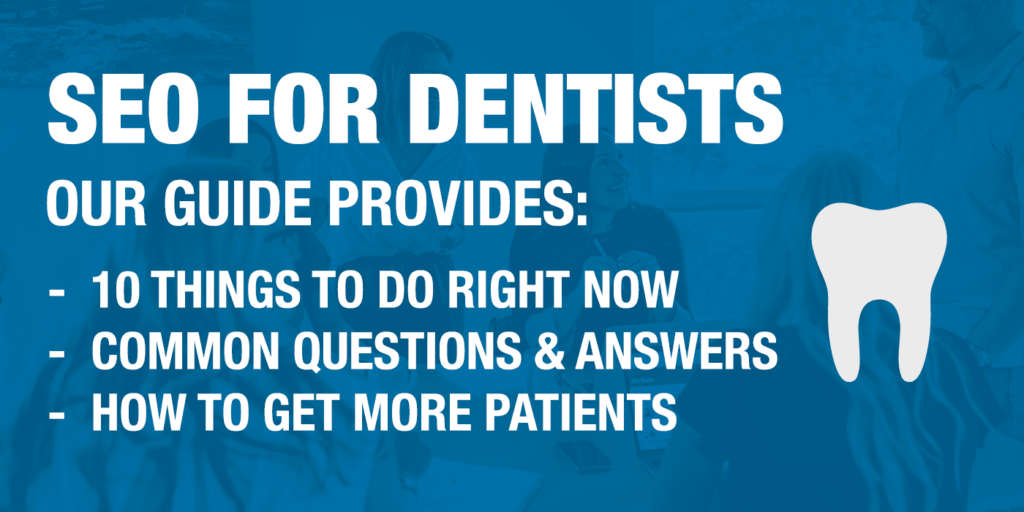
4.3 NAP Consistency on Website
NAP consistency refers to ensuring that your dental practice’s Name, Address, and Phone Number are consistent across all platforms, including your website, GMB profile, online directories, and social media profiles. Inconsistent NAP information can confuse search engines and potential patients, negatively impacting your local search ranking. Regularly audit and update your online profiles to maintain NAP consistency and enhance your local SEO efforts.
4.4 Local Citations and Directories
Local citations are mentions of your dental practice’s NAP information on other websites, directories, and citation sources. Building local citations for your dental practice can significantly improve your local search visibility. Ensure that your NAP information is accurate and consistent across all citation sources. Submit your dental practice’s information to relevant local directories, dental associations, and healthcare directories to increase your online presence and improve your local search ranking.
4.5 Geotagging Images
Geotagging is the process of adding geographical identification metadata to various media, such as photos or videos. Geotagging your dental practice’s images with location-specific information can help improve your local SEO efforts. When potential patients search for dental services in your area, search engines can identify your geotagged images as relevant to their search, potentially improving your website’s visibility in local search results.
4.6 Targeting Location-Specific Keywords
To further enhance your local SEO as a dentist, target location-specific keywords in your website content. Incorporate keywords that reflect your dental practice’s location, such as the city or neighborhood you serve. For example, instead of targeting broad keywords like “dentist,” target location-specific keywords like “dentist in Philadelphia.” By targeting these location-specific keywords, you increase your chances of appearing in local search results when individuals search for dental services in your area.
5. Mobile Optimization for Dental Websites
5.1 Importance of Mobile-Friendly Websites
With the increasing use of smartphones, having a mobile-friendly website is essential for dentists. A mobile-friendly website ensures that your website is properly displayed and easily navigable on mobile devices, providing a seamless user experience. Furthermore, search engines prioritize mobile-friendly websites when displaying search results to mobile users. By optimizing your website for mobile, you can attract and cater to the growing number of individuals who use their smartphones to search for dental services.
5.2 Implementing Responsive Design
Responsive design is a web design approach that ensures your website adapts and displays correctly on various screen sizes and devices. It eliminates the need for separate mobile and desktop versions of your website. Implementing a responsive design for your dental website ensures that it automatically adjusts to fit the screen size and resolution of the device it is being viewed on. This improves user experience, reduces bounce rates, and increases the likelihood of visitors staying on your website longer.
5.3 Fast Loading Speed
Fast loading speed is crucial for both user experience and SEO. Slow-loading websites frustrate users and increase the chances of them leaving your website before it fully loads. Optimize your dental website’s loading speed by optimizing image sizes, minifying CSS and JavaScript files, and utilizing caching techniques. A fast-loading website not only improves user satisfaction but also leads to better search engine rankings, as search engines prioritize websites that provide a positive user experience.
5.4 Optimizing for Voice Search
Voice search is becoming increasingly popular, with more individuals using voice assistants like Siri, Google Assistant, and Alexa to search for information. Optimizing your dental website for voice search can allow you to reach this growing audience. Incorporate natural language and long-tail keywords into your website content to align with the way people speak when using voice search. Answer frequently asked questions and focus on conversational content that addresses specific queries related to dental services.
5.5 Creating Mobile-Optimized Content
While ensuring that your website is mobile-friendly is crucial, it’s equally important to create mobile-optimized content. Mobile-optimized content refers to content that is easy to read, digest, and engage with on a mobile device. Optimize your web pages by breaking up content into smaller paragraphs, utilizing bullet points and subheadings, and using clear and concise language. Focus on delivering relevant and valuable information to mobile users, ensuring that they can easily navigate and access the information they need.
6. Social Media Marketing for Dentists
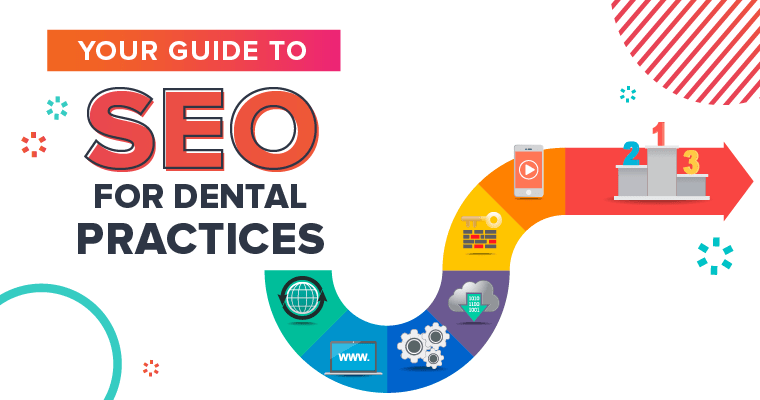
6.1 Selecting Relevant Social Media Platforms
When it comes to social media marketing for dentists, it’s important to prioritize the platforms that are most relevant to your target audience. Facebook is often a suitable platform for dental practices, as it offers a wide reach and allows you to engage with users through posts, comments, and direct messages. Additionally, Instagram can be effective for showcasing before-and-after dental transformations through images and videos. Evaluate your target audience and their social media preferences to determine which platforms to focus on.
6.2 Crafting Engaging Dental Posts
Crafting engaging dental posts is crucial for social media marketing success. Ensure that your posts provide value or entertainment to your audience, rather than simply promoting your dental practice. Share dental tips, educational content, oral hygiene advice, and interesting dental facts to engage your followers. Utilize eye-catching visuals and multimedia content such as images, videos, and infographics to capture the attention of your social media audience.
6.3 Encouraging Patient Interaction
Encouraging patient interaction on social media platforms is key to fostering engagement and building a community around your dental practice. Respond promptly to comments, messages, and reviews on your social media profiles. Ask questions, run polls, and initiate conversations to encourage your followers to interact with your content. User-generated content such as patient testimonials, success stories, and before-and-after pictures can also encourage patient engagement and strengthen the credibility of your dental practice.
6.4 Utilizing Social Media Advertising
Social media advertising can significantly boost your dental practice’s online visibility and reach a larger audience. Platforms like Facebook and Instagram offer targeted advertising options that allow you to specify the demographics, interests, and geographic locations of the audience you want to reach. Utilize social media advertising campaigns to promote specific dental services, special offers, or events and drive more traffic to your website or landing pages.
6.5 Sharing Testimonials and Success Stories
Sharing testimonials and success stories on social media is a powerful way to build trust and credibility with your potential patients. Highlight positive feedback and testimonials from satisfied patients by sharing their experiences on your social media profiles. Encourage patients to share their success stories and dental transformations, whether through text, images, or videos. Sharing authentic and relatable stories can attract more patients and establish your dental practice as a trusted provider of quality care.
7. Building Backlinks for Dental Websites
7.1 Understanding the Importance of Backlinks
Backlinks are links from external websites to your dental website. Building high-quality backlinks is an essential SEO technique that can significantly improve your website’s authority and visibility. Search engines consider backlinks as a vote of confidence for your website, indicating that other reputable websites consider your content valuable and worth linking to. The more high-quality backlinks your dental website has, the higher its chances of ranking well in search engine results.
7.2 Guest Blogging and Influencer Outreach
Guest blogging involves writing and publishing content on other dental or healthcare websites as a guest contributor. By guest blogging on industry-related websites, you can establish yourself as an authority in the dental field and build valuable backlinks. Identify reputable dental websites that accept guest contributions and reach out to them with your topic ideas. Additionally, influencer outreach involves collaborating with influential figures in the dental industry to create content or receive mentions on their websites, further enhancing your website’s visibility and authority.
7.3 Listing in Dental Associations
Listing your dental practice in dental associations and directories can help improve your website’s credibility and authority. Many dental associations have online directories where members can be listed. Ensure that your dental practice’s information is up-to-date and consistent across these directories. By being listed in reputable dental associations, you can attract more backlinks from authoritative websites in the dental industry, positively impacting your website’s SEO.
7.4 Creating Dental Infographics
Creating dental infographics is an effective way to attract backlinks and generate more traffic to your dental website. Infographics visually communicate information in a concise and engaging manner, making them highly shareable across various websites and social media platforms. Create informative dental infographics that address common dental concerns, promote oral health tips, or explain complex dental procedures. Include your website’s URL in the infographic, making it easy for others to link back to your website when sharing it.
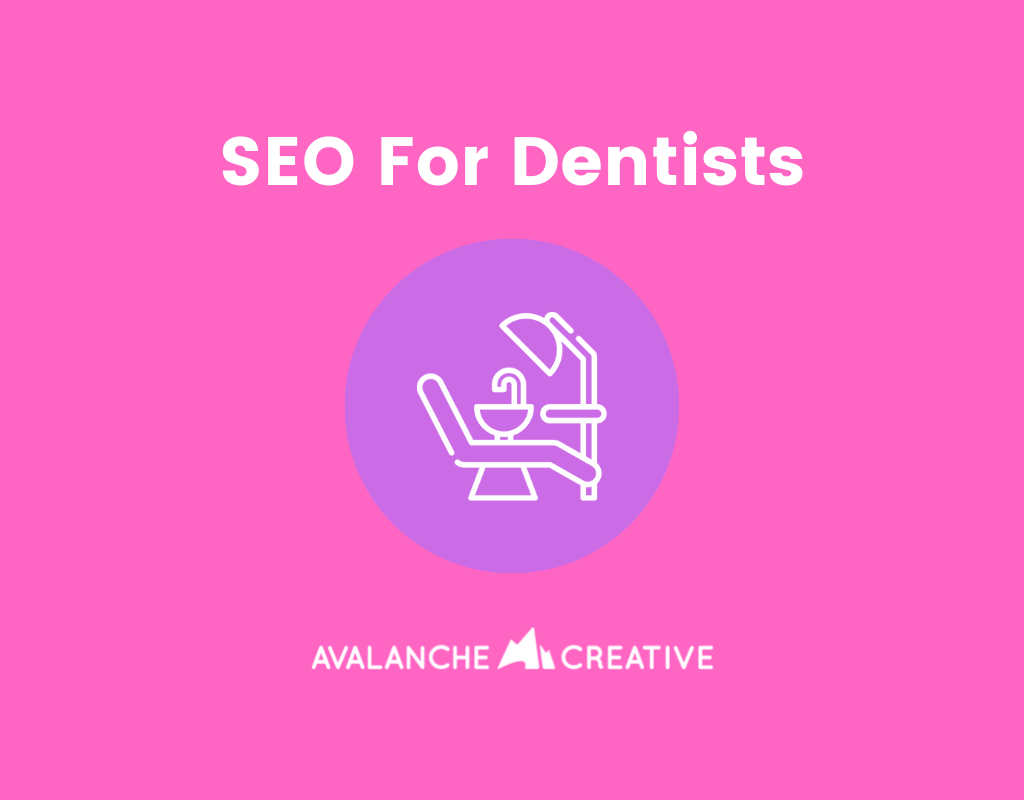
7.5 Monitoring and Disavowing Bad Backlinks
Monitoring your dental website’s backlink profile is crucial to ensure the quality and relevance of your backlinks. Periodically audit your backlinks and identify any low-quality or spammy backlinks that may be negatively impacting your website’s SEO. Disavow these bad backlinks by submitting a disavow file to search engines like Google, indicating that you do not want these backlinks to be considered when evaluating your website’s authority. Regular monitoring and disavowing of bad backlinks help maintain the integrity of your website’s backlink profile.
8. Website Analytics and Tracking
8.1 Setting Up Google Analytics
Setting up Google Analytics is essential for tracking and analyzing the performance of your dental website. Google Analytics provides valuable insights into various metrics, such as website traffic, user behavior, and conversion rates. It allows you to identify which marketing strategies are driving the most traffic to your website and analyze user engagement on specific pages. By setting up Google Analytics, you can make data-driven decisions to optimize your website and improve its overall performance.
8.2 Monitoring Website Traffic
Monitoring your dental website’s traffic is crucial to understanding its performance and identifying areas for improvement. Analyze your website’s overall traffic trends, including the number of visitors, pageviews, and session duration. Assess which sources are driving the most traffic to your website, such as organic search, social media, or referral sites. By understanding your website traffic, you can optimize your marketing efforts and focus on the channels that are bringing the most qualified visitors to your website.
8.3 Analyzing SEO Performance
Google Analytics provides in-depth data on your website’s SEO performance. Use this data to assess the effectiveness of your SEO strategies, such as the keywords that are driving the most organic traffic to your website, the top landing pages, and the average position of your website in search engine results. Monitoring and analyzing your SEO performance enables you to refine your SEO strategies, identify areas for improvement, and make data-driven decisions to boost your website’s search engine ranking.
8.4 Tracking Conversion Rates
Tracking conversion rates is crucial for measuring the success of your dental website in converting visitors into leads or patients. Set up conversion goals in Google Analytics to track specific actions on your website, such as form submissions, appointment bookings, or newsletter sign-ups. Assess the overall conversion rate, the conversion rate for specific landing pages, and the sources driving the most conversions. By tracking conversion rates, you can identify any bottlenecks in your conversion process and implement strategies to improve your website’s conversion rate.
8.5 Utilizing Heatmaps for User Behavior
Heatmaps are visual representations of user behavior on your dental website. They provide insights into how users interact with your web pages, where they spend the most time, and which elements attract the most attention. Heatmaps can help you identify areas of your website that need improvement, such as optimizing call-to-action buttons or adjusting the placement of important information. By utilizing heatmaps, you can enhance user experience, increase engagement, and ultimately improve your website’s conversion rates.
9. Content Marketing Strategies for Dentists
9.1 Importance of Dental Content
Content marketing is an essential aspect of SEO for dentists. Creating high-quality, informative, and engaging content helps attract and retain website visitors, establish your dental practice as an authority, and improve your website’s search engine ranking. Dental content can include blog posts, articles, infographics, videos, patient testimonials, and frequently asked questions (FAQs). By consistently creating valuable content that addresses the needs and concerns of your target audience, you can position your dental practice as a trusted source of information and increase your chances of attracting and converting patients.
9.2 Creating Informative Blog Posts
Creating informative blog posts is an effective content marketing strategy for dentists. Blog posts allow you to educate your audience, answer frequently asked questions, and provide valuable insights into various dental procedures or oral health topics. Identify common dental concerns or topics of interest to your target audience and craft informative blog posts around them. Incorporate relevant keywords naturally in your blog posts to improve their visibility in search engine results.
9.3 Developing Dental FAQs
Developing dental FAQs (Frequently Asked Questions) is an effective way to provide valuable information and address common concerns of your target audience. Create a comprehensive list of frequently asked questions related to dental procedures, oral hygiene, or common dental issues. Craft informative and concise answers to each question, ensuring that they are easily accessible on your website. Dental FAQs enhance the user experience by providing quick and valuable answers, while also improving your website’s search engine ranking for relevant keywords.
9.4 Designing Infographics and Videos
Infographics and videos are visually appealing and highly shareable forms of content that can effectively convey dental information. Design infographics that visually represent complex dental procedures or explain oral hygiene techniques. Create videos that showcase your dental practice, introduce your team, or provide step-by-step instructions for oral care routines. Share these infographics and videos on your dental website, social media platforms, and other relevant dental websites to attract backlinks, engage your audience, and enhance your overall content marketing efforts.
9.5 Guest Posting on Dental Websites
Guest posting on established dental websites is an effective content marketing strategy to increase your dental practice’s visibility and reach a larger audience. Identify authoritative dental websites that accept guest contributions and offer to write informative articles or blog posts for them. Craft high-quality content that provides value to the audience of the dental website you are guest posting on. By including relevant links back to your website within the guest post, you can increase your website’s visibility and attract potential patients.
10. Hiring Professional SEO Services for Dentists
10.1 Benefits of Hiring an SEO Agency
Hiring a professional SEO agency can provide numerous benefits for dentists. SEO agencies specialize in implementing effective SEO strategies that can significantly improve your dental website’s online presence and visibility. By outsourcing your SEO efforts to an agency, you can save time and resources while benefiting from their expertise and industry knowledge. SEO agencies stay up-to-date with the latest trends and best practices, ensuring that your dental website remains optimized for search engines and ahead of your competitors.
10.2 Factors to Consider when Choosing an SEO Agency
When choosing an SEO agency for your dental practice, it’s important to consider various factors. Look for agencies with experience working with dental clients and a proven track record of delivering results. Assess their expertise in local SEO, keyword research, content marketing, and website optimization. Consider their communication and reporting practices to ensure that they provide regular updates on the progress of your SEO campaigns. Additionally, evaluate their pricing structure and ensure that it aligns with your budget and goals.
10.3 Case Studies and Success Stories
Request case studies and success stories from prospective SEO agencies to assess their capabilities and results. Case studies demonstrate the agency’s ability to implement effective SEO strategies and deliver tangible outcomes for their clients. Look for case studies specifically focused on dental or healthcare clients to ensure that the agency understands the unique challenges and opportunities in the dental industry. Assess the agency’s ability to improve search engine rankings, increase website traffic, and generate leads for their clients.
10.4 Customized SEO Strategies
A reputable SEO agency will provide customized SEO strategies tailored to the specific needs and goals of your dental practice. They will conduct an in-depth analysis of your website, target audience, competitors, and industry to develop a comprehensive SEO plan. This plan should include a combination of on-page optimization, content creation, link building, and other proven SEO techniques. By customizing the strategies to your dental practice, the SEO agency can maximize your website’s search engine visibility and drive more qualified traffic.
10.5 Monitoring and Reporting
An effective SEO agency will provide regular monitoring and reporting on the progress of your SEO campaigns. They should offer comprehensive reports that highlight key performance indicators, such as keyword rankings, website traffic, conversion rates, and backlink profiles. These reports should be easy to understand and provide actionable insights for improving your website’s SEO. Regular monitoring and reporting allow you to track the effectiveness of the SEO strategies implemented by the agency and make informed decisions to optimize your website’s performance.

